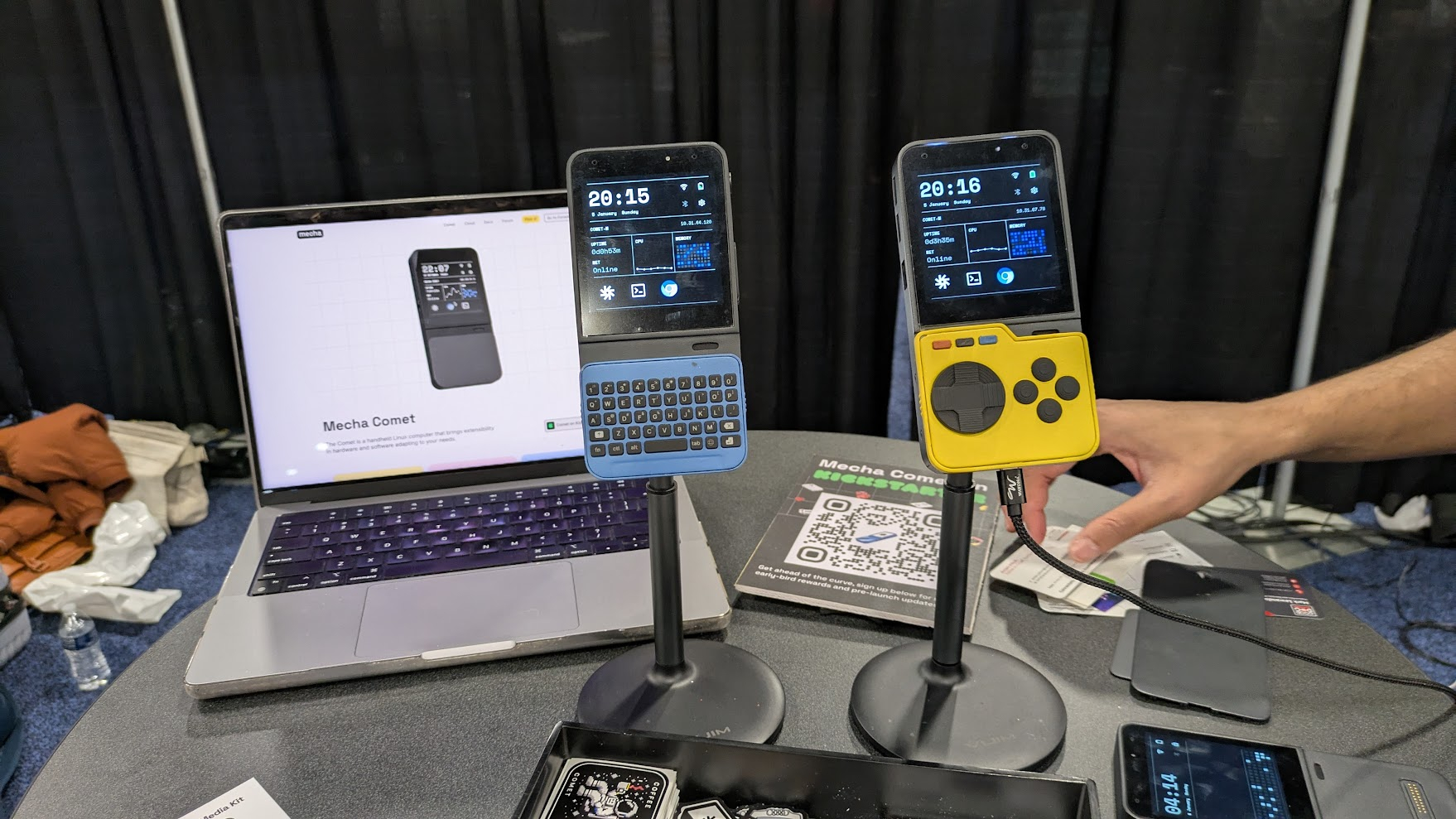
Sure, your phone is fun, but if you want the fun and power of a full-fledged Linux computer in your pocket, you'll need to look elsewhere. The Mecha Comet is a 3.4-inch rectangular handheld that vaguely resembles a BlackBerry, but runs Debian Linux OS with a custom, touch-friendly UI on top. Launching soon on Kickstarter for $159, the device has a pogo pin interface where you can attach various extensions, including a gamepad, a Blackberry-style keyboard and a GPIO (General Purpose Input / Output) connector with 40 female pins.
Using the GPIO connector, you can attach a variety of electronic devices, including Raspberry Pi HATs. You can also attach HATs directly to the Comet or design your own extension board to attach to the pins.
There are hundreds of Raspberry Pi HATs (hardware attached on top) on the market that offer everything from GPS to cellular connectivity to flashing RGB lights or even sensors. That makes the Comet an heir to the Pi ecosystem and its expansion options virtually limitless.
The 3.5-inch, 480 x 480 touch screen shows a fair amount of text and graphics and, with Mecha's custom UI (built in Rust), you can use a touch screen keyboard to enter commands at the command prompt or run apps. However, if you want any of the official extension modules, you'll need to pay a little extra for those (a rep here at CES said they might cost as little as $30 for the set of three).
The internals of the Comet are also hackable. You can easily take the device apart, add a custom M.2 board such as an SSD or a Google Coral M.2 AI accelerator. And there's even an Alan wrench built into the chassis to help you unscrew boards as needed. Four screws in the chassis come out so you can use those whole for a custom mounting bracket, if you choose to 3D print one.
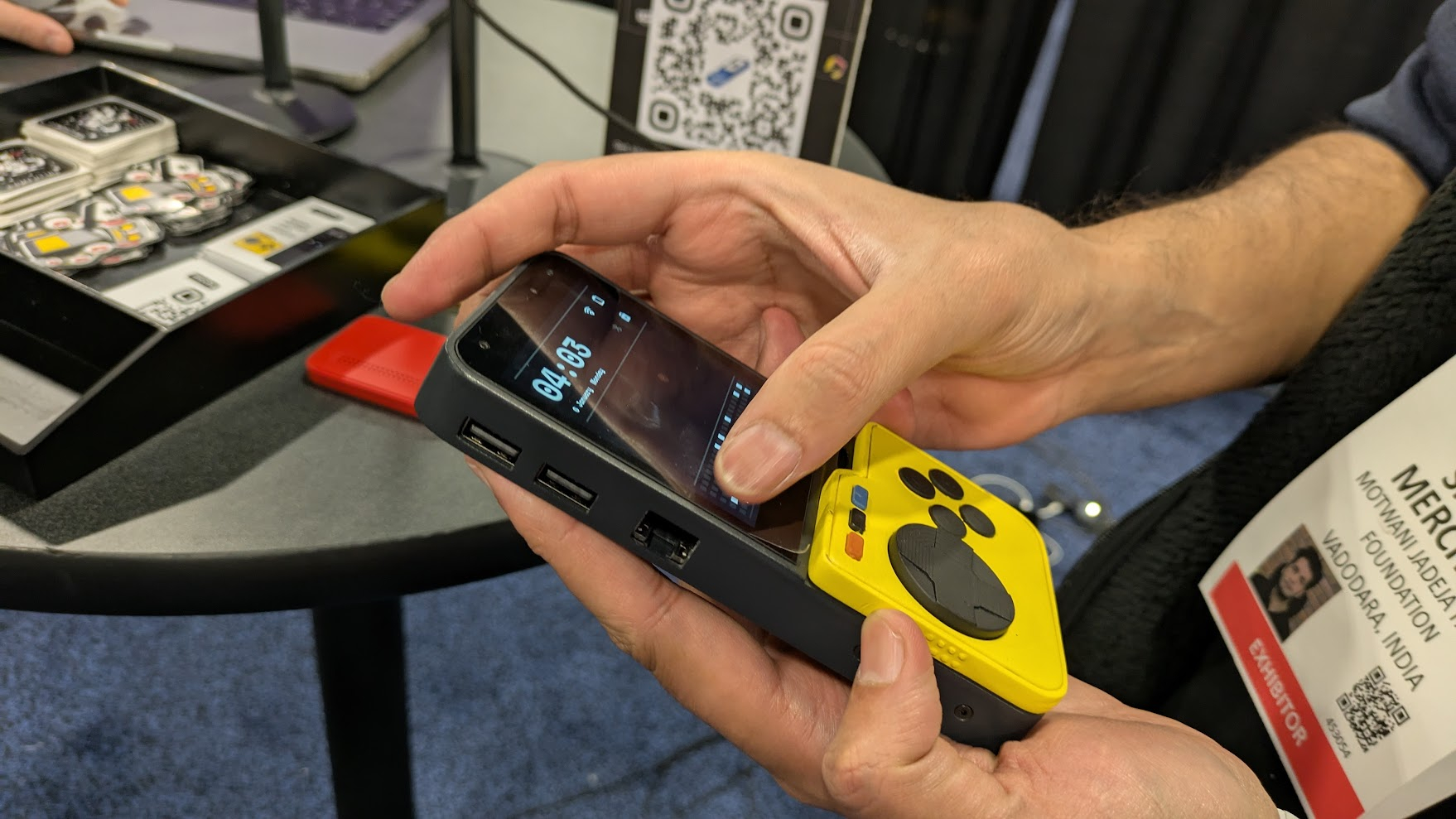
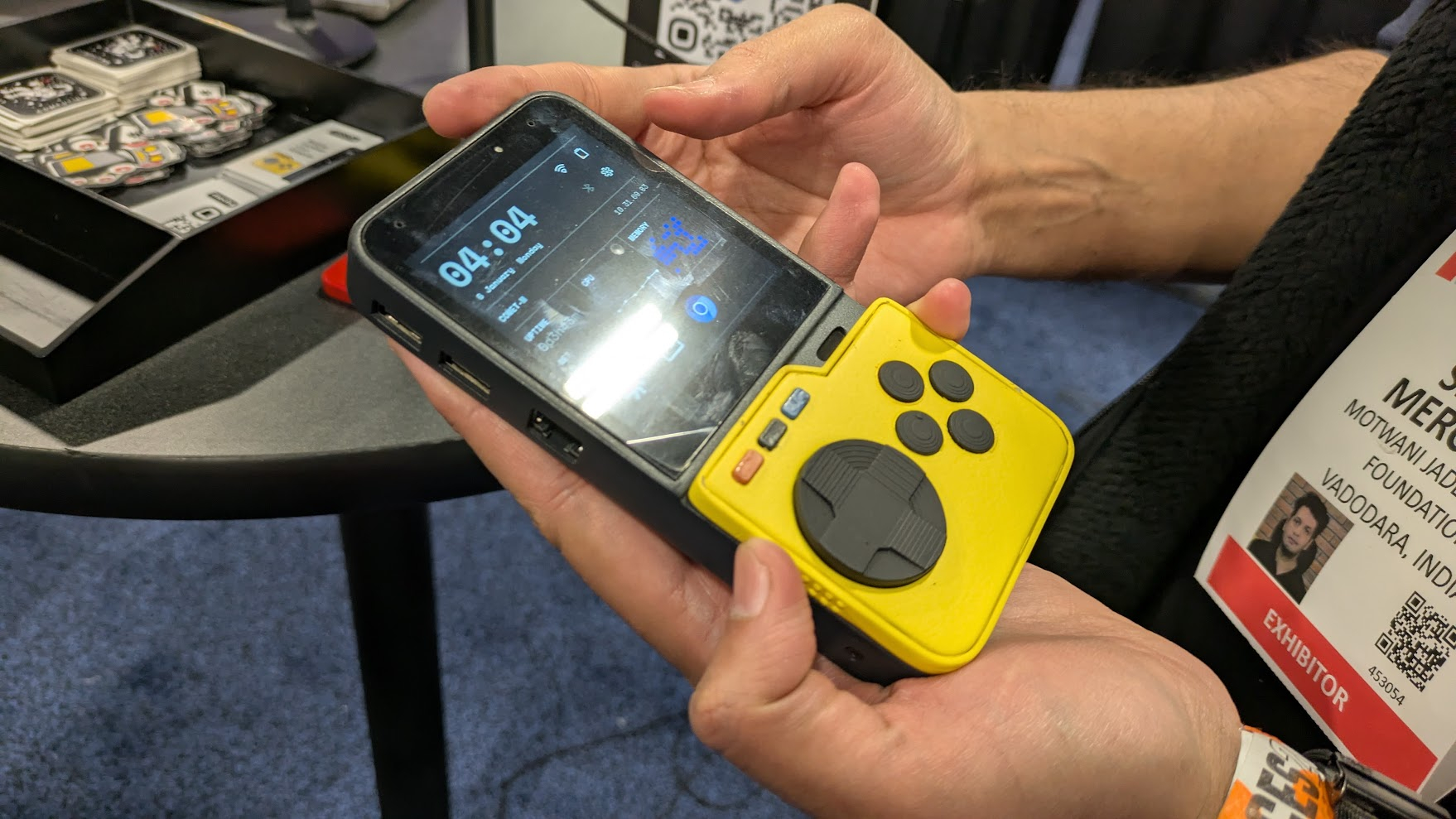
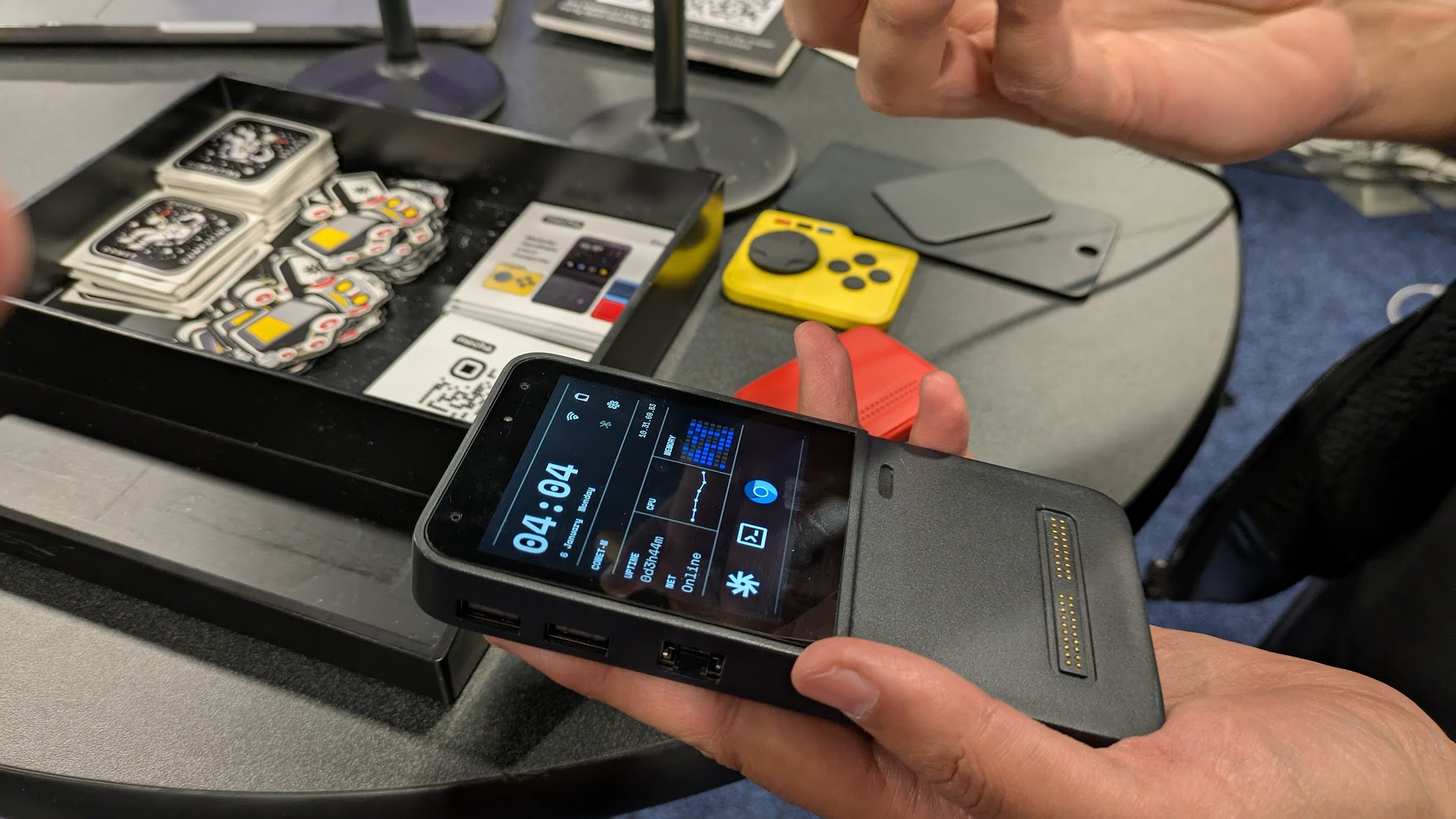
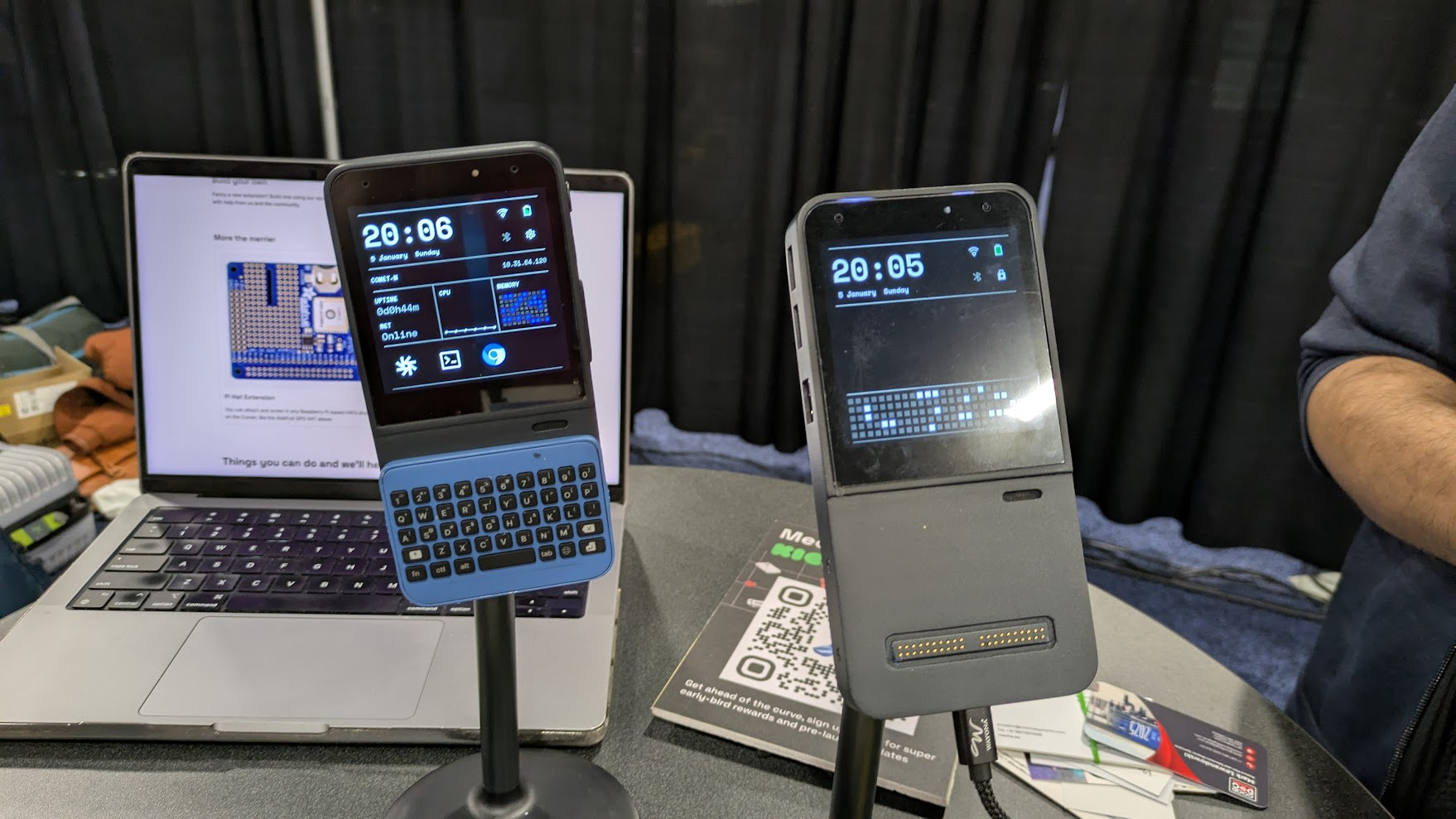
The Comet is powered by a 1.8-GHz quad-core Arm Cortex A53 CPU from NXP, 4GB of LPDDR4 RAM and 32GB of eMMC memory. It has a 3,000 mAh battery that Mecha claims will last 4 to 5 hours with the screen brightness is at maximum. There's a built-in gyroscope, real-time clock and analog-to-digital converter.
The device as a 5-MP camera on the back for taking photos and doing image recognition. It also has a digital mic and an HD speaker. Ports include a full-size Ethernet connector and two USB Type-A 2.0 ports. There's built-in Bluetooth 5.0 and Wi-Fi 5.
We had a chance to see the Mecha Comet in person at CES 2025 and were impressed with the build quality, the clarity of the screen and especially the flexibility it gives you to connect to Raspberry Pi HATs and its own extension modules. I particularly like the fact that there's a home button on the side next to the power button so you can always return to the main screen with a single press.
The possibilities for a pocketable Linux computer like the Comet are practically endless. You can use it for gaming, as a hacking tool for pen testing, as a local AI device, as a tiny web server or as the brains of a robot. Overall, it just looks like a lot of fun for makers, developers and hackers.







